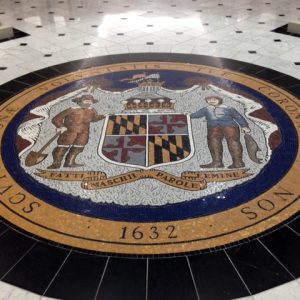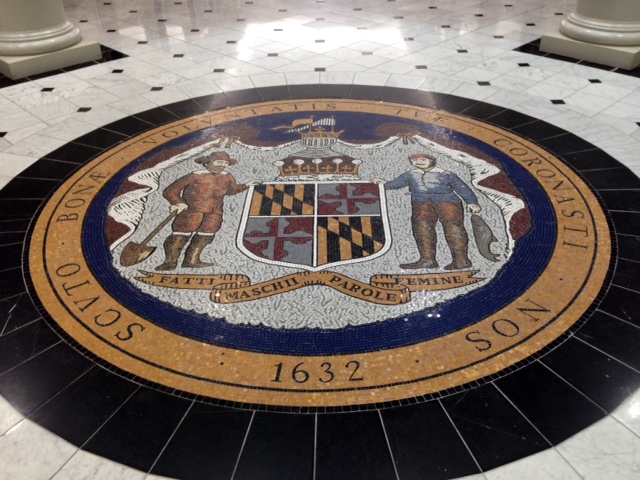
ANNAPOLIS–Maryland legislators are showing their devotion this session with four legislative actions intent on revitalizing state pride considered in the past two months.
One bill, passed in the Maryland Senate on March 17, proposes to rid contentious lines, like “Northern scum,” from the state song.
The move to wipe secessionist language from the song aligns with a forward-thinking Maryland, instead of one that highlights past racism, bill supporters said.
Lawmakers this session also considered legislation that would change the state’s motto, and establish a state duck and a state tartan.
The anthem, as it is, lifts verses from “Maryland, My Maryland,” a poem written by James Ryder Randall after the death of a friend shot while protesting Union troops marching through Baltimore during the Civil War. The anthem, adopted in 1939, faced heat over verses that threaten the Union and implicitly call President Lincoln a “despot” and a “tyrant.”
Revising the song could be rewriting history
Maryland’s state anthem fell flat for bill sponsor Delegate Karen Young, D-Frederick, who said Tuesday that the antagonistic lyrics, which endorse taking up arms against the Union, are “offensive.”
“A lot of people are saying ‘finally.’ Others are saying it’s changing history,” Young said. “It’s not changing history, and it’s just not appropriate to have in a state song.”
Though he doesn’t condone the Confederacy, Sen. Robert Cassilly, R-Harford, said that altering the song is like trying to erase what happened during the Civil War.
“The song was written at the time in the age when the people of Maryland were most outraged and inflamed,” Cassilly said in opposition. “Obviously it speaks with a great deal of passion…the fact that we capture that passion is a good thing.”
Cassilly said that at it’s essence, the anthem memorializes people who “stand up and fight for their liberty.”
Senator says state motto is sexist and mistranslated
Still to come is a House verdict on whether the Calvert family motto, which appears on the reverse of the state seal, should be changed. Senators ushered the bill through Wednesday in a 40-6 vote to adopt.
From Tuscan, the adage translates to “manly deeds, womanly words.” Sens. Michael Hough, R-Carroll, and Bryan Simonaire, R-Anne Arundel, verbally brawled Tuesday in a Senate floor back-and-forth over Simonaire’s bill, which would change the translation to “strong deeds, gentle words.”

“That literally makes no sense,” Hough argued before the Senate on Tuesday. “They’ve interpreted it one way since 1632, so the words say what the words say…to me this is just ridiculous.”
Simonaire defended his translation, questioning Hough’s knowledge of Tuscan.
The Maryland State Archives, however, already follows the revised translation, extracting gendered lingo and replacing them with “strong” and “gentle,” for a “more accurately translated” motto.
Cassilly has his own idea to gain state pride–a duck. Better yet, a state pattern?
In March, Cassilly, who opposed song revisions, sponsored a bill that would make the canvasback duck the state waterfowl. The white-bellied, red-headed species was chosen for its dominant role in the diet of early pioneers. According to Cassilly, you just had to “go to shore, grab a gun, and you had dinner.”
The bill was heard in both Senate and the House committees, but no further votes are scheduled.
Likewise, a bill to create a state tartan–otherwise known as plaid–was voted unfavorably across both chambers, and withdrawn.
Bill sponsor Delegate Michael Malone, R-Anne Arundel, came up with the idea for a state tartan after attending a University of Maryland, College Park basketball game with his son, a junior there. He was inspired by the school’s intermission tradition of unfurling the state flag, and thought the colors would be a good way for small businesses to profit on Maryland-themed products.
“The bill gives them a promotional idea,” Malone said. “You could sell ties and socks with the pattern.”
According to Malone, a state tartan opens the door for businesses to sell patriotic products without being subject to limitations of what you can do with a Maryland flag.


You must be logged in to post a comment.